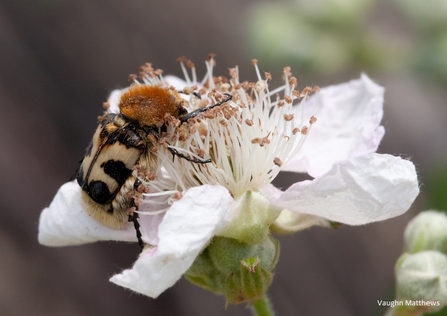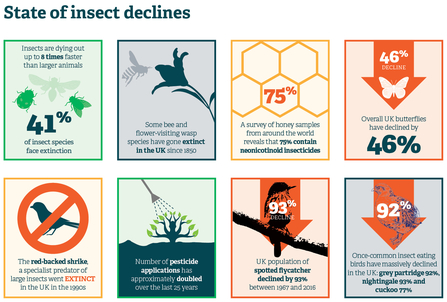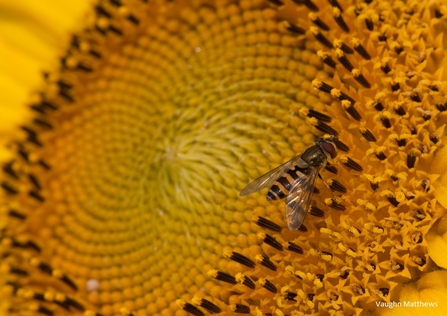New guide encourages us all to take urgent Action for Insects

Bee chafer beetle by Vaughn Matthews
We're launching a new practical guide, 'Your Guide to Taking Action for Insects', which will help everyone do their bit in reversing decades of decline for the UK’s struggling bees, butterflies, moths, bugs and beetles.
The colourful 20-page illustrated guide is available as a free download. It’s packed full of tips, useful info, and links to finding out more, all aimed at helping individuals and families make simple yet crucial changes to helping insects through the ways we shop, garden and run our homes.
The guide has been authored by The Wildlife Trusts working with partner organisations including Buglife, Pesticide Action Network (PAN) and Garden Organic. It has been launched as part of a wider campaign called Action for Insects, which looks to reverse recent drastic population declines among insects.

A recent report published by the campaign, authored by Professor David Goulson, concluded that 41% of insect species now faced extinction around the world, while population declines were widespread across other insect species. The report also highlighted the vital part played by insects in human food production and in their support of countless other birds, mammals and plants.

Hoverfly by Vaughn Matthews
Your Guide to Taking Action for Insects recognises that some insects aren’t always popular with the public when it comes to wildlife. However, it highlights the crucial roles they play in pollinating flowers and crops, controlling pests and natural recycling, plus the beauty and joy that they bring to our lives.
In a range of top tips for helping insects in people’s gardens, it gives guidance on going chemical-free, along with advice on which plants are best at combining colour, scent and attraction to bees and butterflies across the seasons. The guide stresses that all outdoor spaces, whatever their size and location, from balconies to cottage gardens, can make a real difference to restoring insect numbers.
Your Guide to Taking Action for Insects is available now as a free download here.
